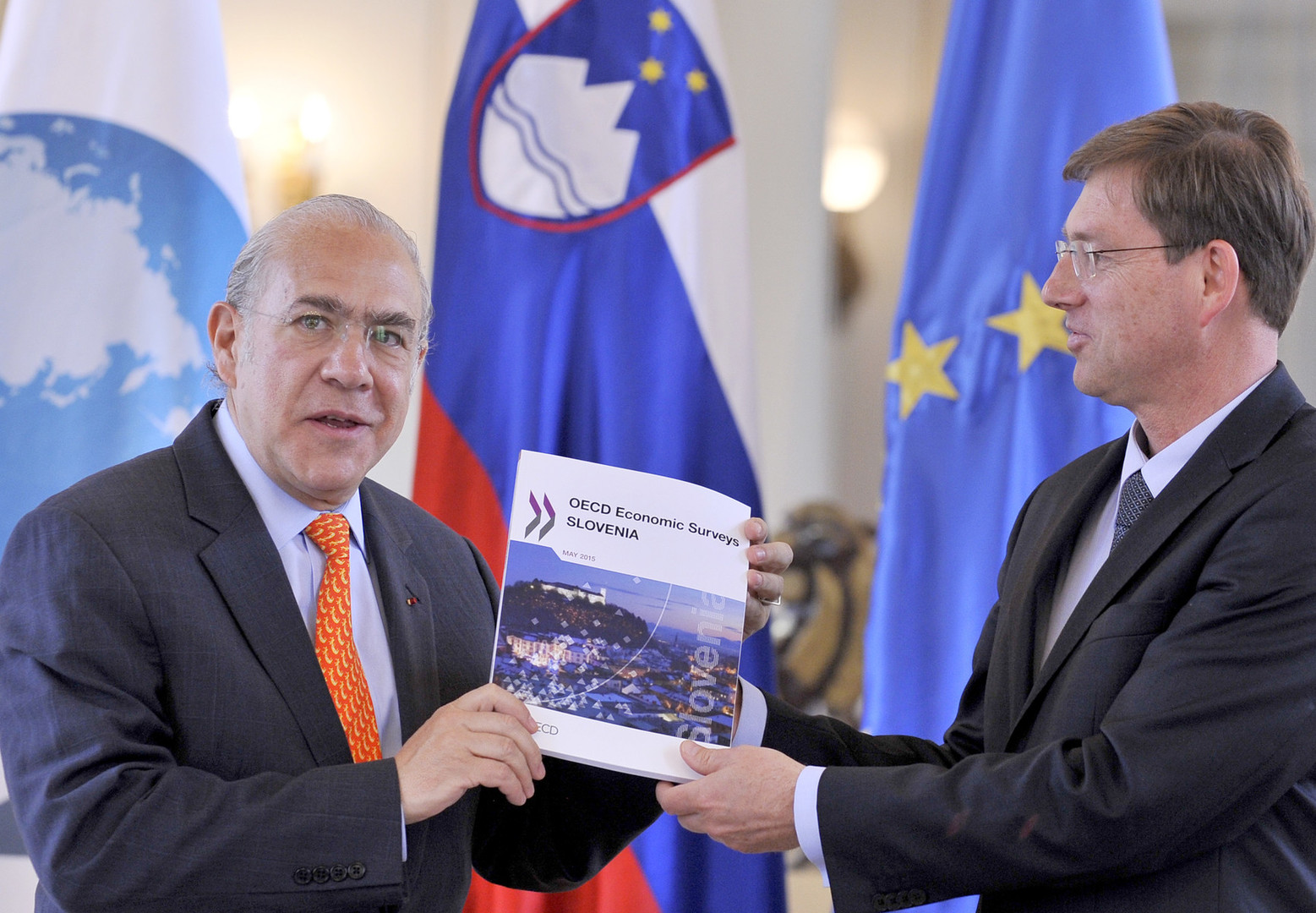Slovenia's Turnaround Impressive, Lot of Work Still Ahead
Published on 6 may 2015Addressing a joint conference with Gurria, Cerar expressed pleasure that OECD recommendations issued today were "very much in tune" with the government's plans.
Gurria, who is in Ljubljana to present the 2015 OECD Economic Survey of Slovenia, noted that Slovenia had moved from recession to growth in the past few years owing to reforms taken and some external factors such as the fall in the value of the euro and low oil prices.
But the work is not done yet, he said, summarising key challenges ahead into three points: continued restructuring of banks and the corporate sector, further fiscal consolidation and structural reform.
Slovenia will have to move from one-off measures to more structural ones, with Guria underscoring pension reform as necessary for fiscal sustainability because of the rapidly ageing population.
Rather than the year Slovenians should work until, Gurria pointed to longer life expectancy as a more important factor that he would peg the reform to.
Asked when pension reform should be implemented, he said "the sooner the better", advising holding a proper debate beforehand on what is an inter-generational issue.
Although such a reform is unpopular, Gurria said the issue should be addressed with a long-term vision and political wisdom, while "some political capital" would have to be spent in the short term.
Cerar said that his government was debating the issue of pension reform intensively and that life expectancy was an important factor, but probably not the only one.
Gurria also called for structural reform concerning taxes, labour market and healthcare. "It's all about things that take time. None produces immediate results, but they must be done," he said.
He moreover deems necessary measures to improve the business environment and corporate governance.
The issue of privatisation should be considered taking in a broader picture. Slovenia should answer the question what is the role of state in the economy and why the state should own enterprises.
If a decision is taken not to privatise certain enterprises, it would have to be seen to it they are managed competently and run transparently and that they pay taxes and do not enjoy privileges, he said.
Meanwhile, Cerar finds it right for the state to make a sovereign decision what to sell and what to keep state-owned, but agrees corporate governance and oversight must be improved and the company management must be organised in a predictable way. "Here too we are on similar wavelengths."
Satisfied that "the path set out by this government and all the guidelines and measures are very in tune with what the OECD is recommending", Cerar said the government was especially aware of the need of structural reform.
He said it was needed not only to break out of the crisis but also because of many global changes in technology and information science and the increasing role of Asia and South America.
"All these developments call for responsiveness," the PM said. The government looked upon development in a comprehensive way but was aware Slovenia's challenges now were centred on finances and welfare.
Cerar said it had been agreed for the OECD to help Slovenia with its expertise and advice to draw up the national development strategy by 2050.
Acknowledging the many strategies on the table, Cerar said: "Time has come at last to take all these components to compile an umbrella strategy to give us a common vision going forward."
Source: Slovenia Times


